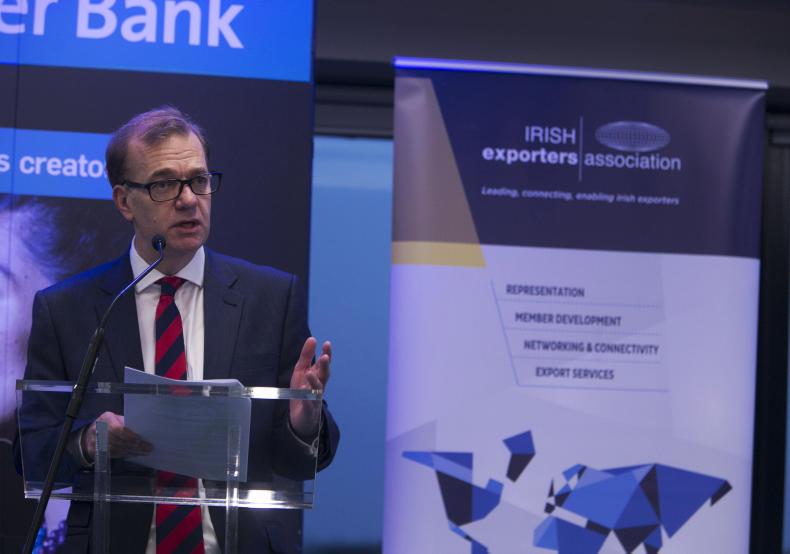The recent negotiations between Europe and the UK showed how fraught the Brexit process is becoming from a political perspective as tensions rise on both sides.
However, from a business perspective, the biggest concern arising out of the Brexit negotiations to date is how much uncertainty remains in terms of the future EU-UK trading relationship.
With this lack of clarity in mind, the Irish Exporters Association (IEA) has run a series of seminars around the country on supply chains as well as to offer advice to businesses on dealing with customs arrangements for third countries.
Listen to "Irish food exports after Brexit" on Spreaker.
Speaking at the final seminar of the supply chain series, Simon McKeever, chief executive of the IEA, said that once the UK is outside the single market, even with a comprehensive free-trade agreement (FTA), there will need to be checks on the border.
“My sense has always been that either we will have a very hard Brexit or there will be no Brexit at all. It’s difficult to see an in-between arrangement,” said McKeever.
Worryingly, he said that more than half (55%) of the IEA’s membership is still not managing their currency risk despite the significant volatility we’ve seen in the UK currency over the last two years.
John O’Leary, head of e-customs at Revenue, said that very few businesses had the in-house skills to manage new customs arrangements with the UK.
O’Leary added that if the trading and customs relationship with the UK changes at the end of the Brexit negotiations then Irish businesses would need to approach the Irish customs service for help. Businesses would also need to examine their supply chains to see if they can simplify their customs process.
“Brexit is a political process. If this process fails then I will be implementing the Union Customs Code (UCC) on all trade with the UK,” said O’Leary.
“Collecting a customs duty on goods is a minor accounting process at the end of the customs process. The money is the easy bit. The bigger role of customs is to enforce the rules for a multiplicity of other agencies at the border. There are no customs within the EU tent but there are very strong customs rules for those outside that tent,” he said.
Collaboration on logistics
Also speaking at the seminar was Declan Sinnott, managing director with Rhenus Logistics Ireland. Sinnott argued that Irish exporters needed to be more collaborative when it comes to logistics, which will bring down costs.
Taking the dairy industry as an example, Sinnott said there are a number of Irish dairy companies trying to reach markets in Asia, the Middle East and Africa but refuse to collaborate on shipping because they’re perceived competitors.
“The size of a container is constant and the distance to a market is constant. Irish dairy companies need to collaborate more on filling containers to cost-effectively reach markets and then they can compete with each other on the ground over marketing the product,” he said.






 This is a subscriber-only article
This is a subscriber-only article










SHARING OPTIONS: